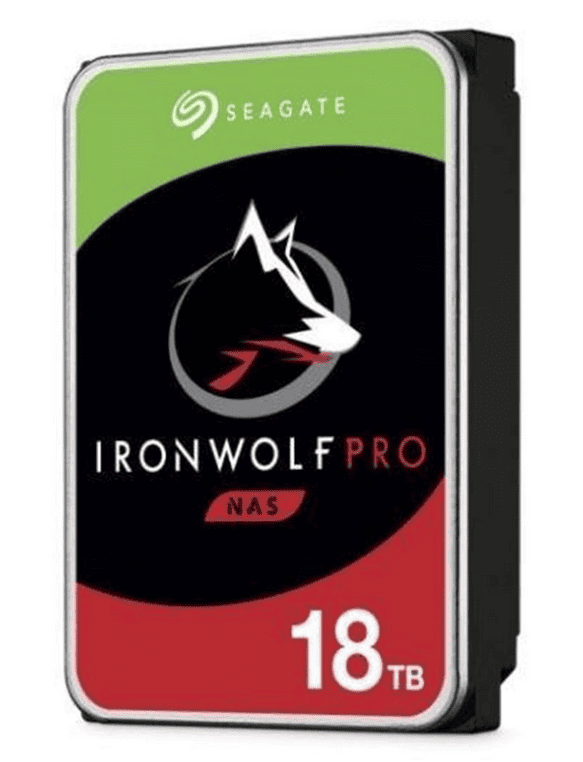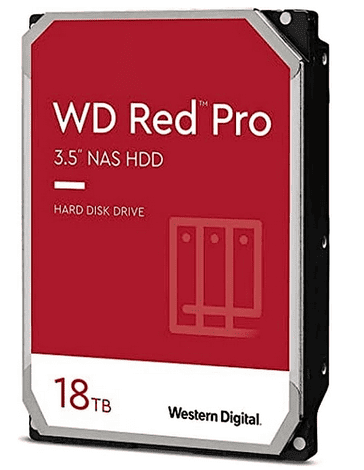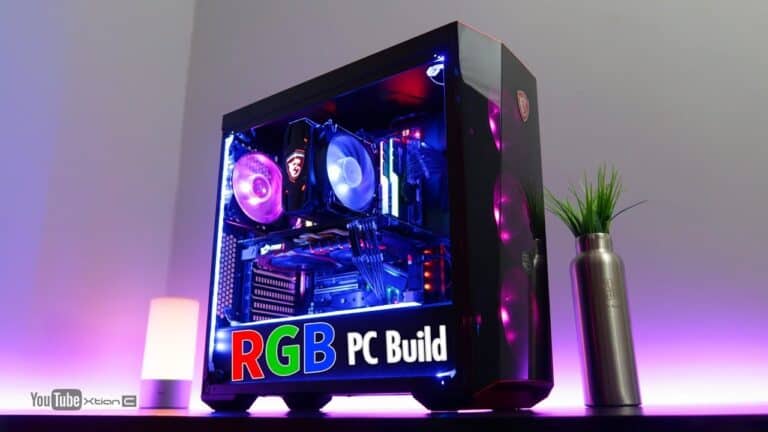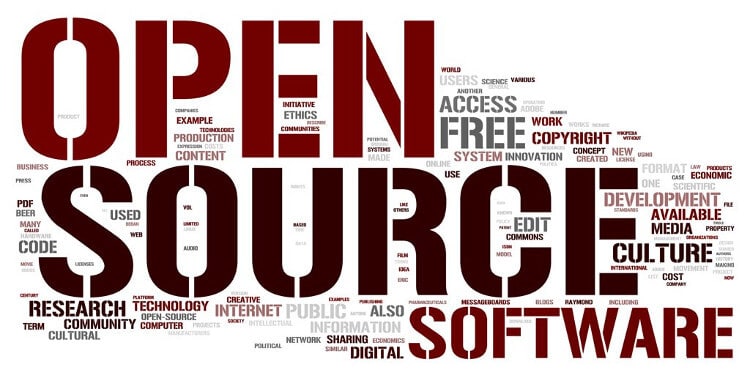Best NAS drives in 2023
What are the best NAS drives?, what features are important?, what are the reason I should not opt for SMR drives for RAID? — Regular desktop hard drives are cheaper, why not get those?

If those are some of the questions that are on your mind, then you have come to the right place.
There are some essential factors to consider when choosing the hard drives for your NAS.
Maybe you also want to know how to become a data hoarder by building your own NAS server.
What is the Best NAS drives?

Seagate IronWolf Pro 18TB
Seagate IronWolf drives have been my go-to model for years now. I’ve been using them for a long time and haven’t encountered any issues.
They have all the features you want in a NAS drive, especially their power management has been impressive to me. My current NAS contains 5 of these devices, and when idle, they consume almost no power.
They are also fully compatible with Synology NAS servers.
Key Benefits
- Comes with all the features you want in a solid NAS drive such a power management, raid optimizations etc.
- Many people have been using it for years.
- Seagate provides 3 years of data recovery, and 5 years of limited warranty.
- I have used their warranty ones through Proshop Denmark, and it went smooth.
Pricing
Hard drive prices move up and down from time to time.
Please check the pricing for the 16, 18 and 20TB variant as they often do discount for only 1 size.
I will recommend taking a look at the Seagate Exos drives as well above and comparing the price.
Make sure you double-check the listing
1. Please check the reviews for the sellers on Amazon.
2. Some sellers sell renewed drives at a slightly lower price, which might compromise your warranty.
3. Check the exact model number before buying, “ST20000NTZ01”.
STxxxx = Indicating what capacity the drive has (measured in Gigabytes).
NTZ = Workload rating is 550 TB — NE = Workload rating is 300 TB.
Numbers at the end = If the drive is filled with air or helium (All drives over 10 TB are Helium only)
My link takes you directly to a reputable seller.
Pros & Cons
Product Pros
Product Cons

WD Red Pro NAS 18TB
WD Red Pro drives are another solid option, they also have all the features you want from a NAS hard drive.
I know many friends who have been happy with these drives and have been using them for a long time.
Key Benefits
- Has all the features you want from a NAS drive.
- Compatible with Synology NAS Servers.
Pricing
These drives usually cost about the same as Seagate IronWolf Pro drives. I would recommend comparing prices between the 2 models before buying.
Please check the reviews for the sellers on Amazon.
Some sellers sell renewed drives at a slightly lower price, which might compromise your warranty.
My link takes you directly to a reputable seller.
Pros & Cons
Product Pros
Product Cons
What Is NAS Hard Drives
NAS hard drives are, in general, similar to normal desktop hard disk drives. But they typically come with a few differences, making them perfect for running in a NAS server:
- Reliability and Durability: NAS drives are engineered to operate 24/7 in a NAS environment, where they might experience continuous usage. They are built with enhanced durability and reliability features to handle extended operational periods without overheating or wearing out quickly.
- Vibration and Noise Management: In a typical NAS setup, multiple drives are often together, leading to increased vibration. NAS drives are designed to handle these vibrations better, which reduces the risk of data corruption or drive failure.
They also make less noise, which is important in a shared environment. - Error Recovery Controls: NAS drives have advanced error recovery controls to deal with the challenges of working in a network environment. These controls aid the drive in recovering from minor errors, this helps maintain data integrity.
- Higher Workload Ratings: NAS drives usually come with higher workload ratings than desktop drives. This means they are designed to handle a higher number of read and write operations, making them suitable for a NAS.
- Optimized for RAID: NAS drives are designed for RAID environments, this minimizes the chances of RAID rebuilds.
- Power Management: NAS drives have more advanced power management features, so they use less energy when they are not in use. This is significant in NAS environments where the drives might not be accessed constantly.
- Longevity: The longer lifespan of NAS drives makes them a better fit for continuous operation over an extended period.
- Firmware and Optimization: NAS drives come with firmware optimizations that are tailored to network storage. This improves data integrity, faster access times, and better overall performance in NAS environments.
How Can NAS Hard drives Benefit You
While, you could buy a few regular desktop hard drives and put them in your NAS server. You will encounter issues over time due to them not being made to run 24/7 and withstand the vibrations of multiple drives.
NAS drives also have firmware and other features that make them ideal for running in a RAID setup.
All of these features aid in achieving a more reliable and efficient NAS server.

How We Conducted Our Researched
I used the following factors to find the best NAS hard drives.
- Pricing: How much did each product cost?
- Features: What features do each product offer?
- Negatives: What is missing with each product?
- Support or refund: Do they offer a warranty, support, and refund policy?
- My Experience: What is my direct or in direct experience of the product?
Conclusion
When it comes to NAS hard drives, there are several solid options. It’s important to check the model numbers to make sure you get the right one.
Although they cost more than regular hard drives, they are well worth the added cost. They are much more reliable, made to run 24/7, and are designed for raid setups.

